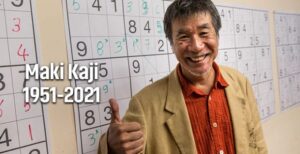Dragon also has Fears
The fall of Afghanistan heightened security fears in China. “Afghanistan looms large in the mind-set of China’s leadership. Although, shared border is only small 47-mile stretch, for China, the nightmare is Islamist terror attacks, plotted across that short border.
Height of Insecurity
China is cracking down on its big Business houses. China’s State Council and the Communist Party’s Central Committee has indicated that they will subject the country’s business sector to increasingly tighter government scrutiny and control over the next five years. The announcement suggests that Beijing’s recent anti-monopoly initiatives against large domestic technology companies and a crackdown on the educational tutoring sector have just been opening shots in a possible long-term campaign to neuter the power of the country’s corporate sector.
Uncooperative Dragon
China calls WHO coronavirus probe “political” and refused to cooperate with a World Health Organization’s proposal for a second investigation into the origins of the coronavirus that causes Covid-19. Chinese Vice Foreign Minister Ma Zhaoxu dismissed that effort as “political tracing” and indicated that China will not cooperate with such a probe.
Bullying Dragon
Lithuania allowed Taiwan to christen its new representative office in Vilnius the “Taiwanese Representative Office.” The Chinese Foreign Ministry on Sunday recalled its ambassador to Lithuania. Deputy Secretary of State (USA) Wendy Sherman criticized the Chinese government’s “coercive behaviour” toward Lithuania. Chinese Foreign Ministry spokesperson Hua Chunying dismissed U.S. and European Union criticism of China’s diplomatic targeting of Lithuania as “wanton comments.”
Needling the Dragon
US announced a virtual “Summit for Democracy” on Dec. 9-10 and has decided to invite a Taiwan representative to the event. Chinese Foreign Ministry responded by warning that China “will definitely not accept the US to invite Taiwan [President] Tsai Ing-wen to participate in the meeting.”
Different Songs
Meeting between newly arrived Chinese Ambassador Qin Gang and US State Department’s Sherman took place.
Chinese Ambassador: “the Taiwan question is the most important and sensitive issue in China-U.S. relations.”
Sherman said her focus in the meeting was human rights concerns as well as Beijing’s blocking of the World Health Organization’s ongoing probe into the origin of Covid-19.
Fake Always
U.S. Customs and Border Protection in Memphis, Tennessee, reported on Friday that they have seized 121 shipments containing 3,017 fake blank Covid-19 vaccination records from China since the beginning of the fiscal year.
Dressing up the History
Official state broadcaster China National Radio dropped a hint that the online gaming industry may be the next target of the government’s regulatory attacks on various business sectors. CNR urged regulators to adopt a “zero tolerance” approach to games that “distort history.” That move is an extension of the government’s criminalization of what it call “historical nihilism,” an umbrella term that applies to any historical accounts that contradict the ruling Chinese Communist Party’s historical narrative.
Dragon Decides Right or Wrong
China’s Foreign Ministry on Thursday accused the Canadian government of “megaphone diplomacy” in its criticism of recent prosecutions and convictions of Canadian citizens by Chinese courts. Hua, the Foreign Ministry spokesperson, said that Canada “is ganging up with a handful of countries to confuse right with wrong in disregard of facts” by criticizing recent court judgments against Michael Spavor and Robert Schellenberg.
Dragon creating an Arms Race
The Japanese government is accelerating revision of its “Medium Term Defence Program” due to concerns about a worsening threat by Chinese military forces. The updated timetable of the revised plan is designed “to counter China’s growing assertiveness in surrounding waters and prepare for contingencies in the Taiwan Strait.”
Smoking Dragon
Chinese investments in new heavily polluting coal-fired power plants and steel factories severely undermine the country’s “carbon neutrality” targets, a research report concludes. The report by the nongovernmental Center for Research on Energy and Clean Air warned that 18 new steel blast furnace projects and 43 new coal-fired power plants announced earlier this year will upon completion emit “an estimated 150 million tons of CO2 a year.”
Thought
Even Dragon has weak spots.
How many can you identify?
For regular updates please register here –
https://55nda.com/blogs/anil-khosla/subscribe/
Credits
Credit goes to all the news reports and articles where these reports were published.

